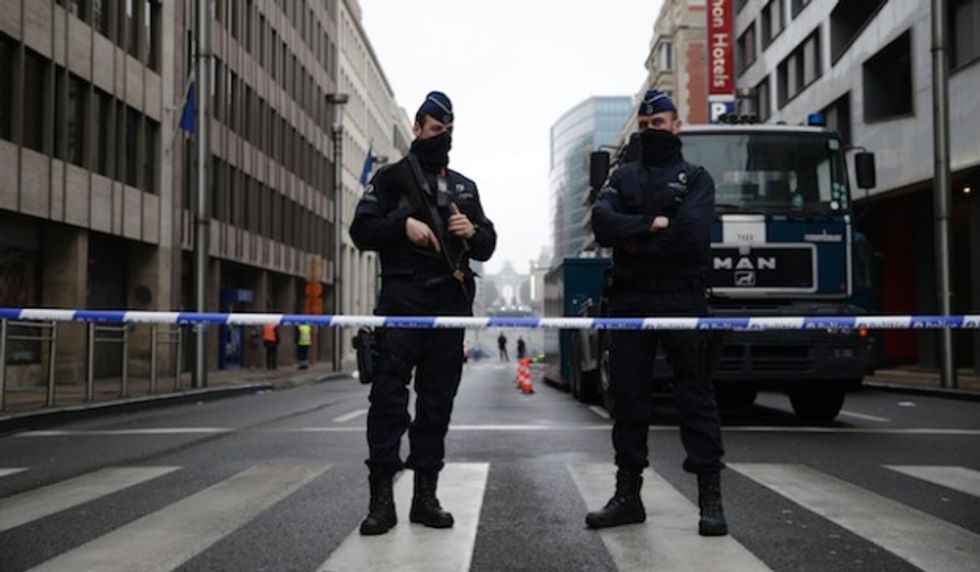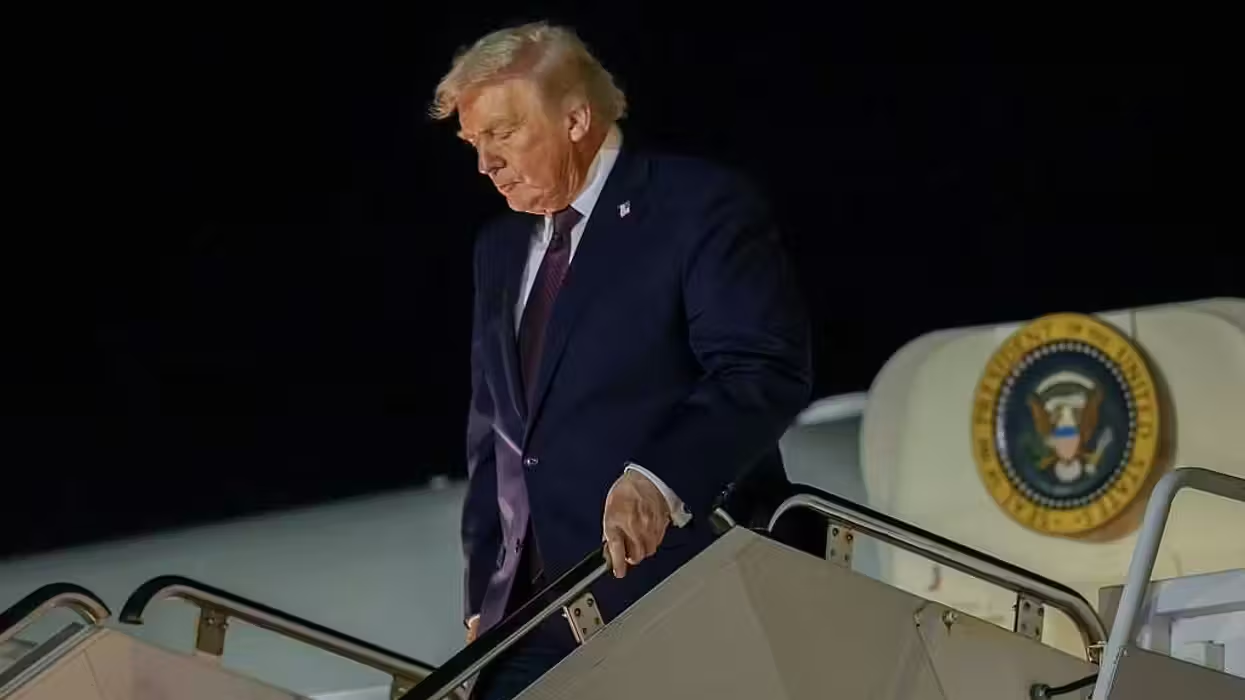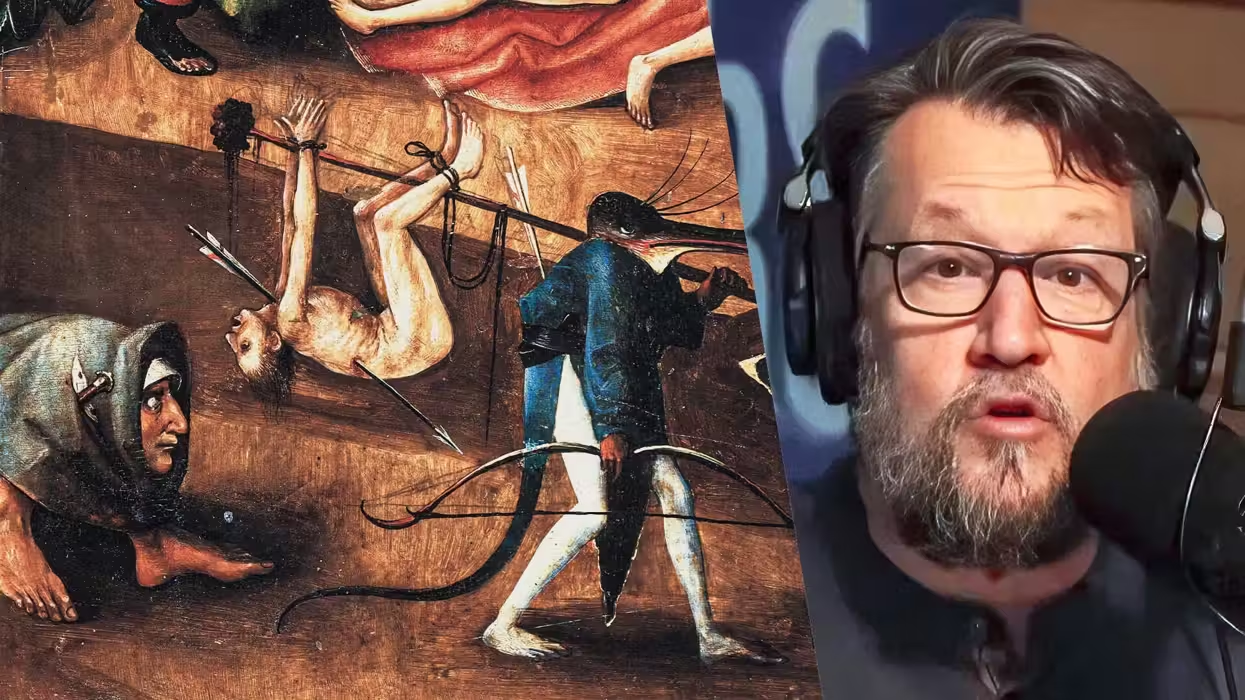By Bonnie Kristian
“We are at war,”
said French Prime Minister Manuel Valls last Tuesday, following that morning’s abhorrent terrorist attack in neighboring Belgium.
French President Francois Hollande agreed, predicting a “long war” which must be “conducted with cool, with calm and lucidity, and with determination.”
But if the last 15 years are any indication, Hollande’s expectation of a prolonged military entanglement will be better fulfilled than his call for a rational response will be heeded. From its very inception, the war on terror has been marked by ill-considered actions of revenge and often futile long-term interventions. This is doubly tragic, for though reactionary foreign policies can be emotionally fulfilling in the short-term, over time these anti-terror efforts have become counterproductive and fiscally irresponsible—while too frequently failing to provide the innocent victims of terrorism the justice and closure they deserve.
As the people of Belgium and their allies grapple with how to respond to last Tuesday’s tragedy, they have at least one valuable asset: hindsight. Before following the course Hollande describes, Europeans should consider the results of a decade and a half of American-led long war.
 Belgian police officers stand guard near Maelbeek - Maalbeek subway station in Brussels on March 23, 2016, a day after triple bomb attacks in the Belgian capital killed about 35 people and left more than 200 people wounded. A series of explosions claimed by the Islamic State group ripped through Brussels airport and a metro train on March 22, killing around 35 people in the latest attacks to bring bloody carnage to the heart of Europe. AFP PHOTO / KENZO TRIBOUILLARD / AFP / KENZO TRIBOUILLARD (Photo credit should read KENZO TRIBOUILLARD/AFP/Getty Images)
Belgian police officers stand guard near Maelbeek - Maalbeek subway station in Brussels on March 23, 2016, a day after triple bomb attacks in the Belgian capital killed about 35 people and left more than 200 people wounded. A series of explosions claimed by the Islamic State group ripped through Brussels airport and a metro train on March 22, killing around 35 people in the latest attacks to bring bloody carnage to the heart of Europe. AFP PHOTO / KENZO TRIBOUILLARD / AFP / KENZO TRIBOUILLARD (Photo credit should read KENZO TRIBOUILLARD/AFP/Getty Images)
There is little to recommend retracing our steps. Consider: After hundreds of thousands of U.S. troops on the ground with more than 8,000 American fatalities, trillions of dollars spent, billions of dollars lost, as many as a million civilian casualties, and so many airstrikes that the largest military in the world is literally running out of bombs—well, we have Islamic State. And we have attacks in Paris. And San Bernardino. And now Brussels.
With this recent history in mind, it becomes debatable, if not indefensible, to suggest that permanent war is a realistic solution to terrorism. More intervention might feel right at this moment, but that is no guarantee it will prevent the sort of unthinkable violence we saw in Brussels this week.
That is particularly so given the disconnect between these homegrown attackers and the terrorist organizations in the Middle East. Though Islamic State has claimed responsibility for the explosion in Brussels, much like in Paris and San Bernardino the Brussels suspects seem to have been locals. They weren’t sent by Islamic State; they’re from Belgium.
Though Islamic State loves to plaster its name onto such crimes in an attempt to suggest far greater power than it actually has, in reality the link is typically minimal or nonexistent. Making permanent our war in the Middle East in reaction to murders here at home is nonsensical—and it will not keep us safe.
Worse yet, if we respond to every terrorist attack with more military force, we allow the terrorists to dictate the terms of engagement. And specifically in the case of Islamic State, lengthy foreign intervention plays right into their plan.
Indeed, by most accounts all-out war with the West is precisely the reply Islamic State-allegiant terrorists hope to elicit with their attacks. Such a reaction would fit nicely into the group’s insane apocalyptic narrative, making recruitment easier and fueling fighters’ savagery. In December of 2014, for instance, after a reported sighting of American soldiers on the ground in Iraq, Islamic State Twitter accounts seethed with excitement, heralding the possibility of meeting western troops in battle as proof of their twisted vision of the end of the world.
In this context, the French president’s declaration of war is revealed as Islamic State's ideal outcome for the slaughter in Brussels. A ground invasion in particular would feed Iraqi and Syrians perceptions of an imperialist West doesn’t respect local autonomy, which means reckless commitment to a long war can and will do Islamic State's public relation for them.
In short, “military options may roll back [Islamic State] in the short-term, but they will mostly be effective in multiplying our problems and intensifying regional instability,” as conservative commentator John Glaser argued at Newsweek after this past fall’s attacks in Paris. “An intensified air war or ground invasion to battle [Islamic State] would be incredibly costly in blood and treasure and has a high likelihood of yielding counterproductive blowback and unintended consequences. But more than that, it’s the very approach that will give the struggling terrorist group a new lease on life.”
Now, as after Paris and other heart-wrenching terror attacks, our impulse is understandably toward action. But it would be a grave error—and a second victory for the Brussels butchers—for Belgium and her friends to pledge endless war, as tempting as that choice now looks as an immediate salve for grief.
What will defeat terrorism is not the long war Hollande promises, but rather the cool determination he recommends. Far more than infinite drone strikes and endless interventions, what beats terrorism is refusing to be terrorized, rejecting fear in favor of a civil liberty at home and a foreign policy of restrained, diplomatic defense.
Bonnie Kristian is a fellow at the American Security Initiative Foundation, contributing writer at The Week, and a columnist at Rare.


 Belgian police officers stand guard near Maelbeek - Maalbeek subway station in Brussels on March 23, 2016, a day after triple bomb attacks in the Belgian capital killed about 35 people and left more than 200 people wounded. A series of explosions claimed by the Islamic State group ripped through Brussels airport and a metro train on March 22, killing around 35 people in the latest attacks to bring bloody carnage to the heart of Europe. AFP PHOTO / KENZO TRIBOUILLARD / AFP / KENZO TRIBOUILLARD (Photo credit should read KENZO TRIBOUILLARD/AFP/Getty Images)
Belgian police officers stand guard near Maelbeek - Maalbeek subway station in Brussels on March 23, 2016, a day after triple bomb attacks in the Belgian capital killed about 35 people and left more than 200 people wounded. A series of explosions claimed by the Islamic State group ripped through Brussels airport and a metro train on March 22, killing around 35 people in the latest attacks to bring bloody carnage to the heart of Europe. AFP PHOTO / KENZO TRIBOUILLARD / AFP / KENZO TRIBOUILLARD (Photo credit should read KENZO TRIBOUILLARD/AFP/Getty Images)






